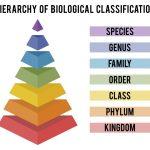The world of literature has evolved significantly throughout history, with various styles and genres emerging and fading over time. This article delves into the evolution of literature, highlighting key milestones and examining how different styles and genres have transformed through the ages. Additionally, we will explore the factors that have influenced these changes, such as cultural shifts and technological advancements. To learn more about the history of literature, visit this comprehensive resource.
Ancient Beginnings: Epic Poetry and Oral Traditions
The origins of literature can be traced back to ancient civilizations, where storytelling was predominantly an oral tradition. In societies such as Ancient Greece and Mesopotamia, epic poetry served as the primary form of literary expression. These lengthy narrative poems, such as Homer’s “Iliad” and “Odyssey”, recounted the deeds of heroic figures and preserved cultural values for future generations. Over time, these oral stories were transcribed, marking the beginning of written literature.
Middle Ages: The Rise of Romance and Religious Literature
As we move into the Middle Ages, literature witnessed a shift in focus towards romance and religion. Chivalric romances, such as the Arthurian tales, grew in popularity, emphasizing the virtues of knighthood and courtly love. Meanwhile, religious texts like the Divine Comedy by Dante Alighieri demonstrated the profound impact of the Christian faith on medieval society. These literary works often employed allegory to convey moral and spiritual messages, reflecting the concerns and values of the time.
Renaissance and Enlightenment: Drama and Satire Take Center Stage
The Renaissance and Enlightenment periods saw a surge in literary creativity, with new genres and styles emerging. Playwrights like William Shakespeare and Molière revolutionized drama, producing masterpieces that continue to captivate audiences today. Moreover, the satirical writings of authors such as Jonathan Swift and Voltaire provided biting social commentary, challenging the status quo and advocating for change. These works marked a shift towards more complex themes and an increased emphasis on individualism and human potential.
Romanticism, Realism, and Modernism: Embracing Emotion and Experimentation
The 19th and early 20th centuries brought about significant changes in literature, with the rise of Romanticism, Realism, and Modernism. Romantic authors, including Jane Austen and Lord Byron, prioritized emotion, imagination, and the beauty of nature. In contrast, Realist writers like Charles Dickens and Leo Tolstoy depicted the harsh realities of life, focusing on social issues and human experiences. Modernist literature, exemplified by authors such as James Joyce and Virginia Woolf, further pushed boundaries, experimenting with narrative techniques and exploring the complexities of the human psyche.
Postmodernism and Beyond: Deconstruction and Diverse Perspectives
Postmodern literature emerged in the mid-20th century, characterized by skepticism and the deconstruction of traditional literary conventions. Writers like Thomas Pynchon and Salman Rushdie played with form and language, questioning the very nature of storytelling. Additionally, contemporary literature has embraced diverse perspectives, with authors from various cultural backgrounds and experiences sharing their unique voices. For a list of essential contemporary works, check out this curated selection.
Conclusion: An Ongoing Evolution
The journey of literature, from ancient epics to postmodern masterpieces, demonstrates the ever-evolving nature of this art form. As society continues to change, so too will the styles and genres of literature, reflecting the values, concerns, and experiences of each new generation. By studying the history of literature, we gain a deeper understanding of the human experience and the power of storytelling to shape our world. As we look to the future, we can expect literature to continue evolving, adapting to new technologies and embracing an even wider range of voices and perspectives, ensuring that the world of literature remains a dynamic and vital part of our culture.


